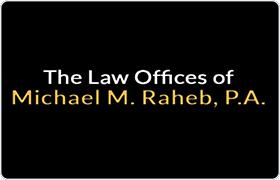 El Jobean Misdemeanor Lawyers, Florida
El Jobean Misdemeanor Lawyers, Florida
Sponsored Law Firm
-
 x
x

Click For More Info:
-
Law Offices of Michael M. Raheb P.A.
2423 First St Fort Myers, FL 33901» view mapCriminal Defense Law Legal Problem? Call Us 24/7
At the Law Office of Michael M. Raheb, we strive to ensure each of our clients receives the individual attention and representation necessary to obtain an optimal outcome.
800-890-8981
Sponsored Lawyers
1-1 of 1 matches
Criminal, Traffic, DUI-DWI, Misdemeanor
Attorney David A. Haenel is one of the most celebrated criminal defense, DUI and traffic ticket attorneys in Florida. Since 2000, Mr. Haenel has been working to ensure the best possible results in each case he tries. After graduating in the top third of his law school class at the Widener University School of Law, Mr. Haenel went on to earn a Master of Law degree in criminal law from the State University of New York at Buffalo. Mr. Haenel’s career began in the State Attorney’s Office. He was named the State of Florida DUI Prosecutor of the Year while he was in this role. His experience as a prosecutor is now put to work on behalf of clients who are accused of various criminal, DUI and traffic offenses. Mr. Haenel has earned a stellar reputation among his clients and peers. Mr. Haenel is admitted to practice law before the Federal District Court for the Middle District of Florida, the State Courts of Florida and the State Courts of New Jersey. He is a member of the Florida Association of Criminal Defense Lawyers and the Sarasota County Bar Association.
(more)



 Michael M. Raheb Fort Myers, FL
Michael M. Raheb Fort Myers, FL Practice AreasExpertise
Practice AreasExpertise

